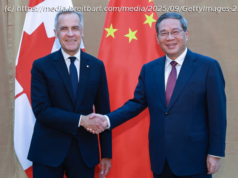Shift in rules should simplify the process of changing jobs or moving among mainland cities
It will be easier for Hongkongers working on mainland China to change jobs or move among cities there in the future, after Beijing said on Friday it would abolish a work permit requirement for employees from the city, Macau and Taiwan.
The change means workers from those three locations no longer need additional documentation to take up jobs on the mainland.
Companies can also escape the tedious application procedures. Previously, they would have to help employees submit up to 10 items of paperwork to get a work permit from a municipal human resources department.
The permits were not portable and employees would need a new one each time they switched jobs or cities.
Local human resource experts and politicians welcomed the announcement by the State Council, China’s cabinet, but described it as “symbolic”, adding that Hongkongers still faced real hurdles in working across the border.
For example, unlike mainlanders, they have to pay full prices for medical services in public hospitals before seeking reimbursement from social security insurance, if it is provided by their employers.
In a brief statement on Friday, the State Council said: “Following the abolishment, the Ministry of Human Resources and Social Security will introduce supporting measures to further facilitate Hong Kong and Macau residents to work and start a business on the mainland.”
Last year, during his visit to Hong Kong to celebrate the 20th anniversary of the city’s return to Chinese rule, President Xi Jinping pledged to provide more convenience and opportunities for Hong Kong people studying, working and living on the mainland.
In December, after her maiden duty visit to Beijing, Chief Executive Carrie Lam Cheng Yuet-ngor said Hongkongers graduating from mainland universities would find it easier to secure a certificate allowing them to find jobs. More Hong Kong children would be able to study in public schools across the border and people working on the mainland would be allowed to contribute to a fund to help them to own property there.
The work permit system, in place since 2004, is similar to the working visa for foreigners in Hong Kong. Mainland firms must prove that the Hong Kong, Macau or Taiwan residents they want to hire are uniquely qualified and that the positions they are hiring them for cannot be filled by a local, despite the job being advertised for at least three weeks.
Hong Kong’s largest pro-Beijing party, the Democratic Alliance for the Betterment and Progress of Hong Kong, welcomed the move.
“This measure could enable Hongkongers to freely choose their professions just like other mainland residents, and will also prevent mainland enterprises from refusing to recruit Hongkongers due to complicated procedures,” it said in a statement.
The party also called on Beijing to roll out more measures to help Hongkongers on the mainland with their employment as well as education, medical and elderly care needs.
Alexa Chow Yee-ping, managing director of AMAC Human Resources Consultants, praised the move, but said she believed medical and pension concerns would still hold back some Hongkongers.
“Unlike the work permit required by the United States, it is actually not too difficult and complicated to secure the mainland permit as the companies would take care of it,” she said.
“But of course, it is better to have it scrapped as now Hongkongers will enjoy the same status as mainlanders and will not have to go through the process again when they move to another company or city.”
Hongkongers currently working on the mainland shared similar sentiments.
Liu Chun-chiu, who works in the advertising industry in Shanghai, said: “The new policy doesn’t make much difference to me. A reduction in tax would be way more useful.”
Meanwhile, Zhang Xiaoming, the director of the State Council’s Hong Kong and Macau Affairs Office, visited the Zhongguancun Beijing-Hong Kong-Macau Youth Innovation Centre in the Chinese capital, where a group of young people from the two special administrative regions exchanged views on their experiences and difficulties on the mainland.
Additional reporting by Kimmy Chung and Alvin Lum






